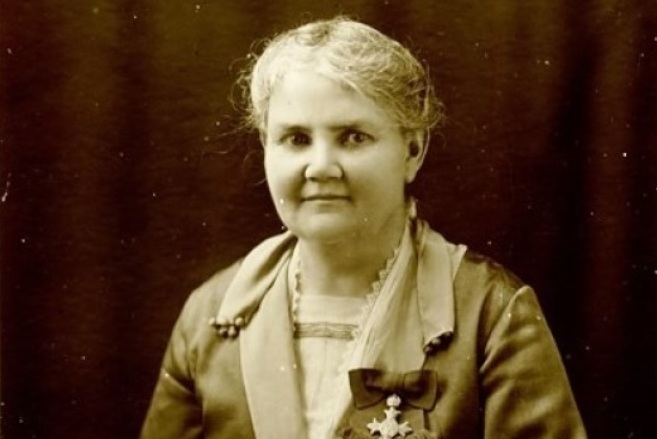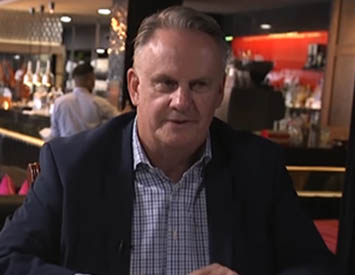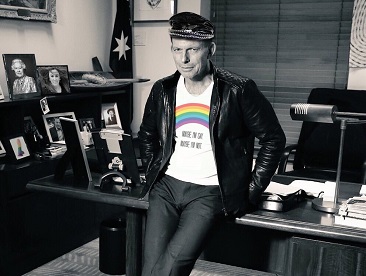Tony Abbott is not a dual citizen, but he is a belligerent narcissist who revels in spreading acrimony and dividing the nation, writes Dr Benjamin T. Jones.
The Australian Constitution is seldom read and poorly understood by the general population. Nevertheless, most Australians are aware by now that s44(i) disqualifies a “subject or a citizen of a foreign power” from serving in Federal Parliament.
The most significant use of s44(i) was in 1998 when a High Court decision ruled One Nation’s Heather Hill ineligible to take a Senate seat because she was a dual citizen of Australia and the United Kingdom.
There are two important repercussions from the 1998 ruling. The first is symbolic. As Independent Australia has argued since its inception, Australia should become a republic. What self-respecting nation would willingly give its highest position of constitutional honour to the monarch of a foreign power? The second is practical. Surely every aspirational politician since 1998 has carefully checked that they are not a dual citizen?
Apparently not.
The spate of victims of s44(i) is a national embarrassment. It reveals either incompetence or, like the many expense scandals, a culture of entitlement and feeling above the law. A bit of both, probably.
We might feel sympathy for Larissa Waters, as Canadian citizenship laws changed a week after she left as a baby, but what excuse is there for her Greens colleague, Scott Ludlam or LNP senator Matt Canavan? What excuse is there for One Nation’s Malcolm Roberts or Deputy Prime Minister, Barnaby Joyce, both referred to the High Court? Should Joyce lose his seat, he could potentially take the Government down with him.
But with all the victims of s44(i) and others, perhaps to follow, it turns out that British-born former prime minister, Tony Abbott was not a dual citizen after all.
Tony Abbott was born in England in 1957 and came to Australia as a child. After Julia Gillard, he is the second £10 Pom to become Australian prime minister. Abbott has always been fiercely proud of his British heritage. As prime minister, he controversially claimed that Australia was “unsettled” or “barely settled” before 1788 and that the arrival of the British was the "defining moment" in the nation’s history.
Abbott’s passion for the country of his birth is well-known, as is his Menzian devotion to the British Queen. Before entering parliament in 1994, he led the "No" campaign against an Australian republic. For all the opportunities and benefits his adopted country has given him, he has never displayed the fervent patriotism one might expect from a political leader. In fact, he only applied for Australian citizenship in 1981 to make himself eligible for a Rhodes Scholarship (the prize, ironically, was funding to leave Australia and study at Oxford).
But did he ever renounce his British citizenship?
The so-called Abbott "birthers" began as a fringe conspiracy group but gained some mainstream traction in 2014-15. Analogies were drawn with the U.S. birther movement, who questioned President Obama’s origins. The obvious difference was that Obama had produced his Hawaiian birth certificate, while Abbott refused to produce the necessary documentation for renouncing British citizenship (sorry Roberts but “choosing to believe” you’re not a dual citizen is not legally binding).
In May 2015, IA’s editor and founder, David Donovan, published an article concluding that on the balance of evidence, Abbott probably was a dual citizen. At the time, I agreed. Granted S.44(i) is a technicality – and perhaps even a silly one – but the law is the law. If Hill and others before her were ruled ineligible, then the same should apply to Abbott, even as prime minister. Abbott was toppled by Turnbull in 2015 and the "birther" issue went away.
The explosive resignation of Scott Ludlam set in motion the recent dual citizen saga. I was among the chorus of people who immediately demanded some proof from Abbott.
Ridiculous that eligibility is not independently checked first. It shouldn't be up to MPs or reporters to uncover it. And what about Abbott? https://t.co/ZjkSIHwKTG
— Dr Benjamin T. Jones (@DrBenjaminJones) July 14, 2017
And then, incredibly, he provided it – just like that. Not when it mattered. Not as prime minister. But in a casual tweet on 14 July 2017. (The details were later verified by the British Home Office.)
Granted, this is a man who thought eating a raw onion would be a flattering photo opportunity, but this was bizarre even by Abbott’s standards. He could have shut down all the "birthers" in 2014-15 with one casual tweet. So why didn’t he? To use David Marr’s phrase, this is a “political animal” at work.
In the August print issue of The Monthly, Judith Brett describes Abbott as “the terminator”. The opposite of a consensus builder, he sees the world through a religious lens — the righteous and the wicked, goodies and baddies (and occasionally baddies and baddies). Unlike the Trumpian narcissist politician who needs constant praise, Abbott needs enemies — needs to feel like he fighting the good fight.
After victory at the 2013 election, Abbott could have been magnanimous. He could have thrown a bone to his critics and courted the centre-left. He could have made some attempt to say, “I’m not as bad as you think I am”. Some small gesture towards renewable energy, a few token women being promoted, something for public school and hospitals, could have framed him as a unifying leader.
Abbott went the other ways. He had won and it was time for his ideological opponents to suffer. He was triumphal as he threw out the price on carbon, shameless in having just one female in cabinet, brazenly deceitful on Gonski funding and proud of the derided co-payment plan.
It was not just Labor and Greens supporters in Abbott’s crosshair, enemies within his own party also had to suffer.
Hosting Prince Harry, Abbott even apologised for Australia’s republicans before adding:
“Today, everyone feels like a monarchist."
It was an obvious middle finger to Malcolm Turnbull, the former leader of the Australian Republican Movement and the man Abbott replaced as Liberal leader.
Turnbull had the last laugh, of course, and this explains why the proof of citizenship has now come out. It doesn’t matter anymore. As prime minister, he relished the fact that his domestic enemies were suffering. Not only did they strenuously oppose his policies, they were further tormented with the thought he was not legitimate. Abbott could have at least allayed the second concern. It speaks volumes that he did not.
Tony Abbott is not a dual citizen but he is a culture warrior, a combatant, and a stirrer. As prime minister he was a divider of the nation and his own party. Both are still feeling the affect.
Dr Benjamin T. Jones is an historian at the Australian National University. You can follow Dr Jones on Twitter @DrBenjaminJones, on Facebook here, or on his blog Thematic Musings.
Brilliantly put. Abbott's obstruction of gay marriage is a defence of privilege and the power of shame | David Marr https://t.co/ZHECMMvQP4
— Dr Benjamin T. Jones (@DrBenjaminJones) August 10, 2017

This work is licensed under a Creative Commons Attribution-NonCommercial-NoDerivs 3.0 Australia License
Monthly Donation
Single Donation
“So far he’s managed to destroy three governments, including, memorably, his own” https://t.co/ijaqQRuMp5
— Coalition Tea Lady (@ItsBouquet) August 9, 2017
Stand up to bullies. Subscribe today.











